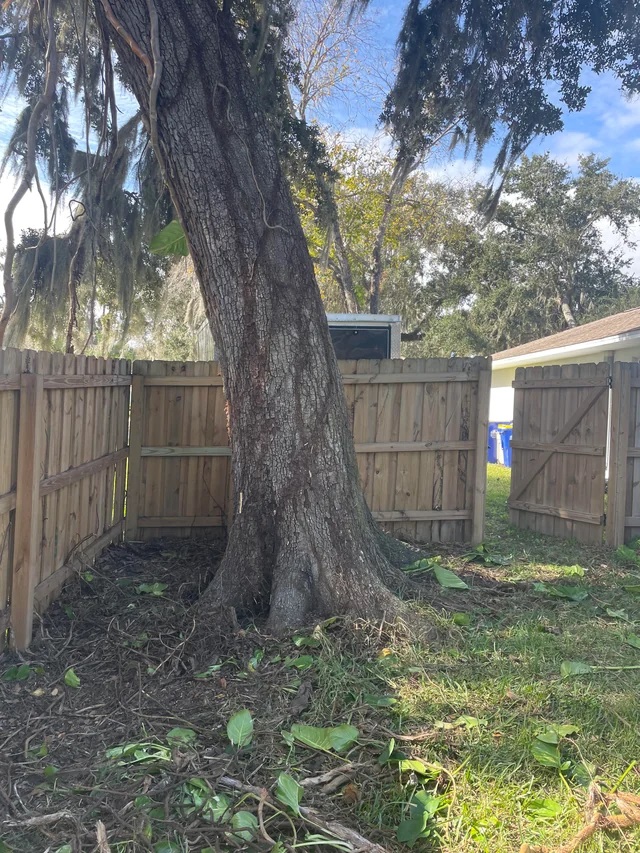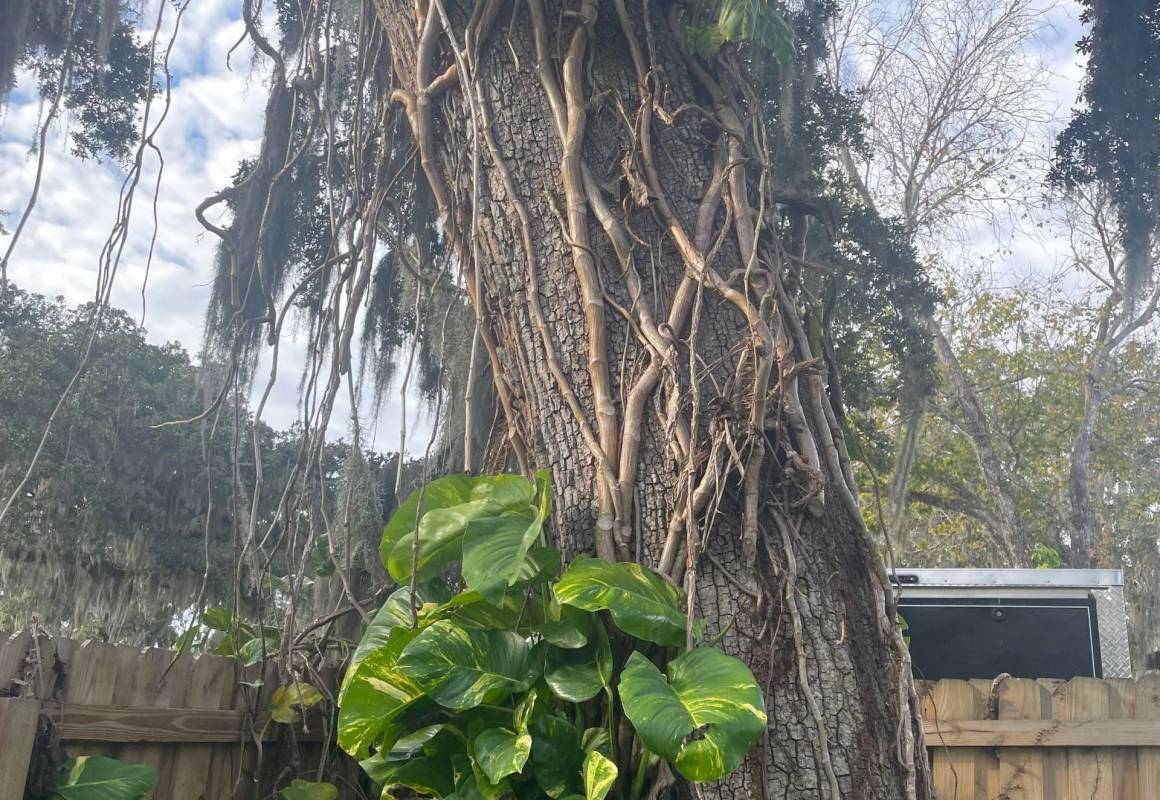After half a day of yard work, a Redditor shared their experience of removing an invasive species.
"I HATE POTHOS!" they wrote. "I live in an area in which pothos is extremely invasive and aggressive. I just spent my morning trying to save my oak tree and manually removing the pothos. Please do not plant invasive species outside!"

Golden pothos — native to Southeast Asia and the Pacific Islands — is considered an invasive species in parts of the United States, including Florida and Hawaii. It can grow to 150 feet and strangle trees, and it is nearly impossible to destroy.
"It has roots that grow along the stem that are capable of gripping the trunk of a tree or a stone wall," according to Wild South Florida. "It produces underground stems called rhizomes and tubers that increase the difficulty of removing it. Again, any pieces left behind are potential new plants. It is heat, drought and shade tolerant."
It's also poisonous to animals and can grow in deep shade, with the ability to kill a host tree.
So, it's essential for many gardeners and homeowners to oust the menace, which usually propagates via clippings or house plants that aren't properly trashed.
When cultivating a yard, it's best to plant native species. Not only are they adapted to the environment, but they can also save you money and time by requiring less water and maintenance than alternatives such as grass lawns.
Taking part in the rewilding movement also reduces your reliance on fertilizers and pesticides, boosting biodiversity and providing places for insects, birds, and other wildlife to thrive.
Deep roots help native plants survive drought and lessen soil erosion and flooding, and the species also filter pollutants from groundwater and remove carbon from the atmosphere, according to Openlands.
Pothos, though, is just one vine that can take over if given the opportunity.
"When I bought my house the previous owners had let English ivy grow all up the brick of the house and take over an oak tree," one Redditor said. "It's insane that people don't understand the damage vine activity like that brings!"
Another responded: "Ugh, English ivy! The wooden fence between us and our neighbors is the latest casualty.
"We also had trumpet vine going up the wall of our garage. It was beautiful, but what wasn't beautiful was having to shell out for a new garage roof. I'm done with vines."
Join our free newsletter for easy tips to save more, waste less, and help yourself while helping the planet.









